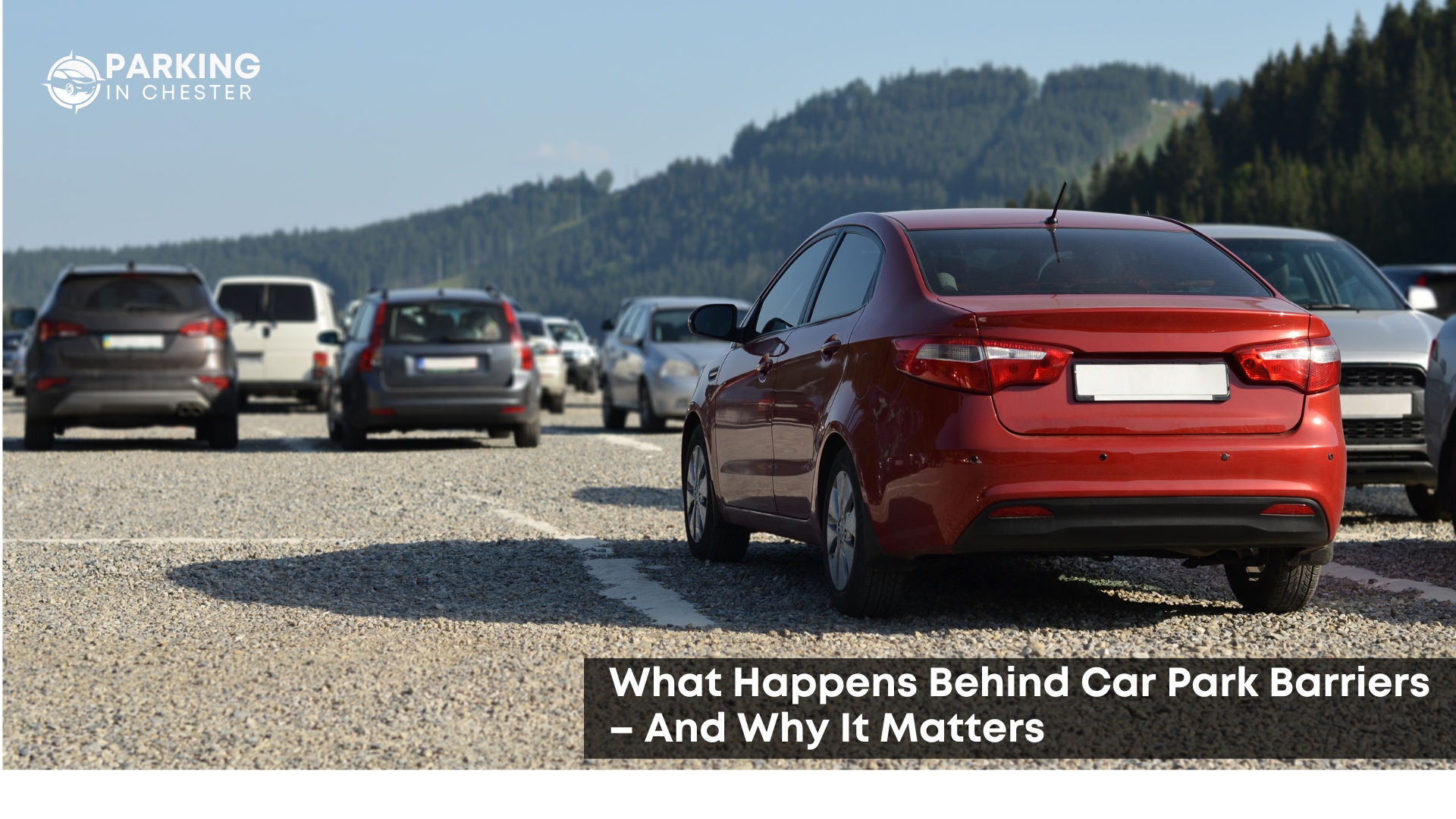Have you ever wondered what happens when you drive through a car park barrier? It might seem like just a gate going up and down, but there’s far more happening behind the scenes. At Parking In Chester, we get questions all the time about car park barriers, and for good reason. These systems are about more than access; they play a big role in safety, data, and the smooth operation of a barrier car park. To understand why they matter, let’s start with what they are and why they’re used in the first place.
What Are Car Park Barriers and Why Do We Need Them?
Car park barriers are physical systems installed at the entrance and exit points of a car park to control who comes in and out. Yes, we need them because they help manage vehicle flow, improve car park protection, and reduce unauthorised access. Without them, many car park safety barriers would be impossible to enforce, especially in high-traffic areas. But understanding their value means knowing how they work in real time.
How Do Car Park Barriers Work?
Car park barriers work using sensors, ticket systems, licence plate recognition, or electronic passes. When you arrive at a car park entry barrier, your vehicle is either detected by a sensor or a ticket is issued. On exit, you scan the same ticket or your number plate is recognised. Modern car park access barriers are automated and require little staff involvement. While it seems simple from the outside, there’s often a hidden layer of technology operating in the background.
Who Controls the Barriers – and What Data Is Collected?
Parking operators, local councils, or private security companies usually manage barrier systems. These systems collect data such as entry and exit times, number plates, and payment methods. In the UK, all car park barriers must comply with GDPR rules, but concerns still exist. This information helps track usage, prevent abuse, and improve future design of car park protection systems. The question of whether these systems can prevent crime often follows.
Can Car Park Barriers Stop Theft or Crime?
Yes, car park security barriers can help prevent crime by controlling access and deterring opportunistic theft. When combined with cameras and car park protection barriers, they reduce unauthorised movement and make it harder for vehicles to enter or exit without payment or ID. Barriers work best as part of a broader car park safety setup, but they’re not perfect. And when something goes wrong, users often feel the impact quickly.
What Happens If a Barrier Malfunctions?
If a car parking barrier fails, it usually causes delays and frustration for users. Some systems can be manually overridden or set to lift to avoid congestion automatically, but this depends on the provider. In other cases, drivers may be stuck waiting for a technician. Car park barrier safety regulations require regular maintenance to reduce these risks. Still, a faulty barrier can be enough to make some people wonder just how closely they’re being watched.
Are Car Park Barriers Watching You?
Yes, in many cases, barriers are linked to CCTV or number plate recognition systems. These tools are used for car park protection and not for tracking individuals without cause. However, car park barrier UK operators must follow strict data rules. Cameras around car park crash barriers and gates help keep people and property safe. It’s all part of the balance between safety and privacy. Even so, for some drivers, barriers feel more like a hassle than a help.
Do Barriers Make Parking Easier – or More Frustrating?
Barriers can do both. When working well, car parking barriers make parking more secure and organised. But when queues form, tickets jam, or payment fails, they quickly become a source of stress. In small car parks, barriers can cause more congestion than they prevent. The success of car parking barrier systems often comes down to design and maintenance. And as with most things in transport, cost plays a role in whether they’re widely adopted or not.
How Much Does It Cost to Install and Run These Barriers?
Car park barrier prices vary depending on the type of system used. Simple manual gates cost less, while fully automated car park access barriers with CCTV and license plate recognition are more expensive. Ongoing costs include power, maintenance, and software updates. For many councils and businesses, the cost is justified by improved control and reduced misuse, especially in areas like a short stay car park, where efficient management is crucial. Still, with new tech emerging, some wonder whether barriers are still the best solution.
What’s the Future of Car Park Barriers?
The future of car park barriers includes smarter systems that use real-time data, mobile payments, and automation. Some newer car park protection systems remove physical barriers entirely and rely on digital tracking instead. As electric vehicles and shared mobility grow, the role of the car park fence or physical boundary may change, too. The barrier may not disappear entirely, but it’s evolving. To see how these changes could affect your experience, you can view parking options that already reflect this shift. So why should all this matter to everyday drivers?
So, Why Do Car Park Barriers Matter?
Car park barriers matter because they impact security, access, and how we interact with parking as a whole. Whether you’re using a multi-storey garage, a car park fence for protection, or a small car park fencing setup, barriers shape your experience from start to finish. At Parking In Chester, we believe a well-designed car parking barrier system makes life easier, not harder. To learn more about choosing the right solution, visit this website. In the end, it’s not just about a gate lifting or lowering, but what that represents in terms of safety, order, and convenience.


Leave a Reply